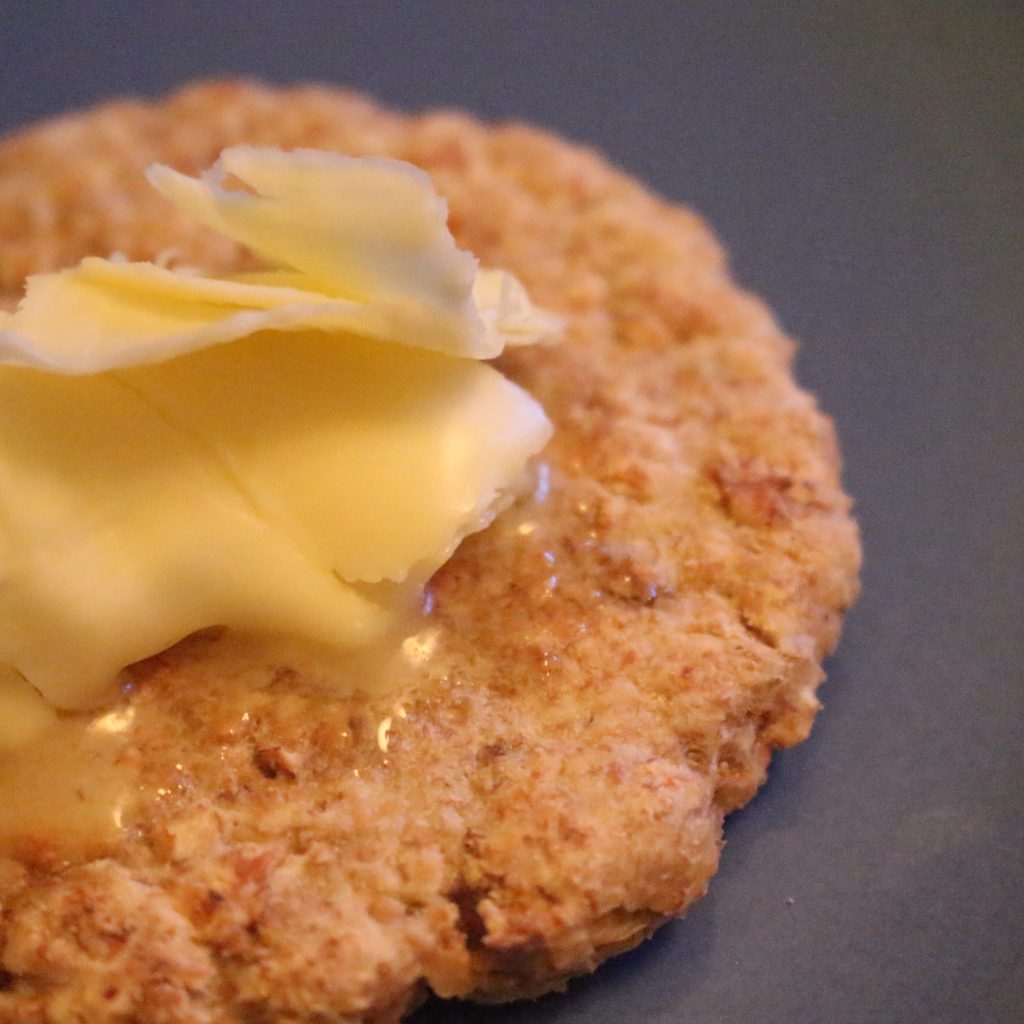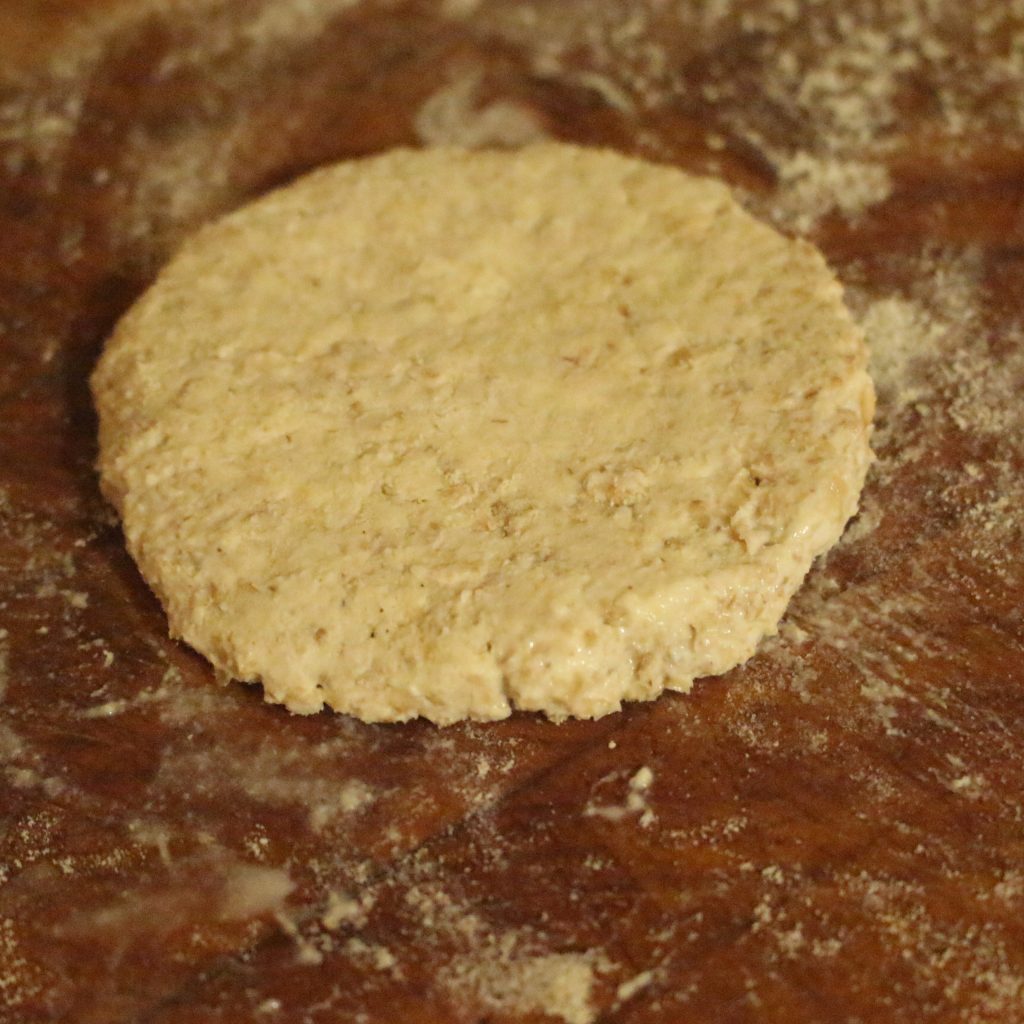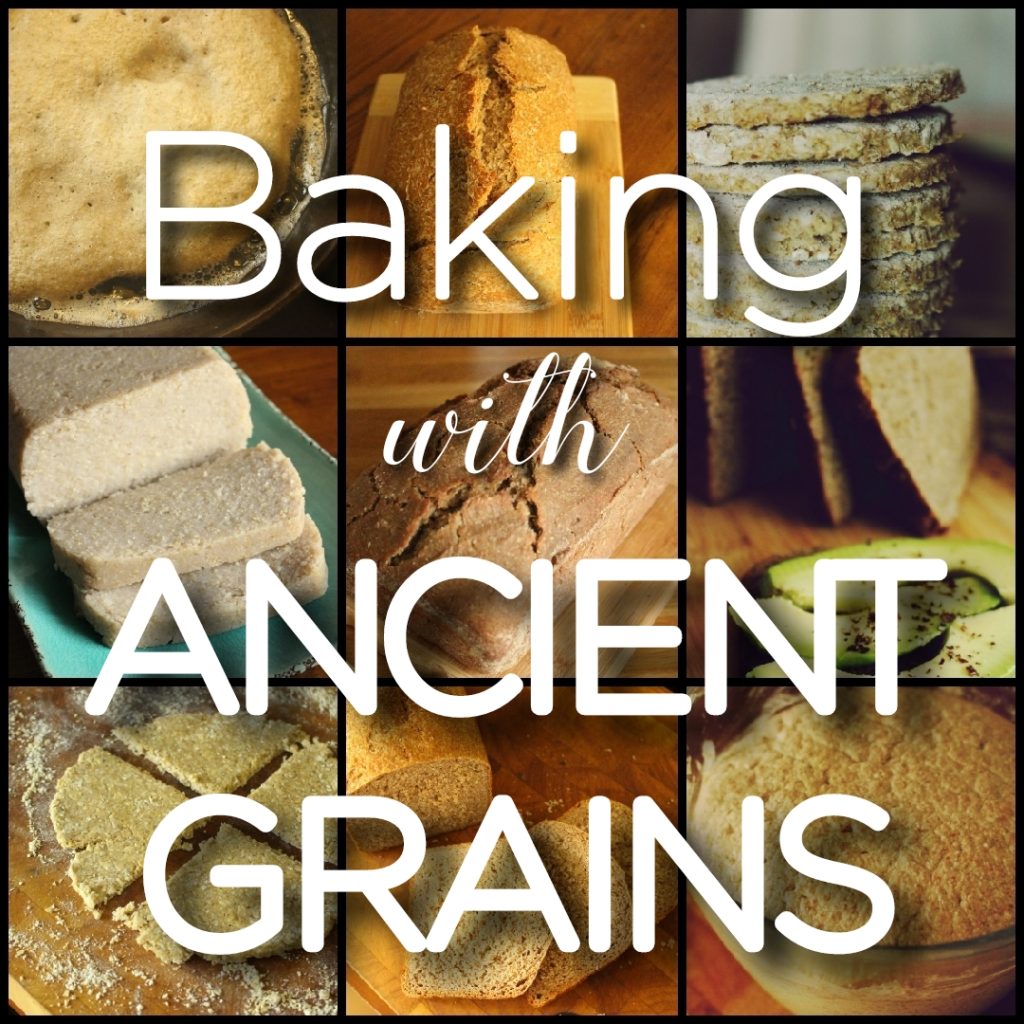Oatcakes were the one of the staple foods of the Scottish, Welsh, Irish and northern-English populations long before the advent of the more modern grain, wheat.

The ‘cake’ in their name may make our modern minds think that they are sweet. But they are, in fact, a savoury biscuit/cracker. Traditionally, they were baked on a bakestone or griddle over a fire before being dried in the oven to make them very crisp. They were eaten as is but also often crumbled into a bowl and topped with stock, buttermilk or water.
Being someone who soaks or preferments virtually all of the grains and flour she uses in her kitchen, I was suprised to learn that traditionally oatcakes were made with unsoaked, unfermented oats. The oat grain would have been ground into flour at the local mill, making a medium coarse ‘meal’. This was mixed with warm water and (most often) fat to make a dough.
I love making oatcakes this, traditional way, but I also wanted to come up with a fermented, sourdough version. A lot of people have issues digesting unprocessed grains and that modern science shows us that there are many benefits to the sourdough process.
These days, rolled/flaked oats are more widely available than ground oats, so I use them in this recipe. You’ll need a medium flake – too big and the cakes won’t adhere together, too fine and you’ll loose the beautiful crunchy texture.
The fermentation in these oatcakes is ‘started’ by a sourdough starter, but if you don’t have this, you could use one of the alternatives I suggest. They ferment overnight, so if you’d like these for breakfast, prepare them the evening before. Finally, I cook these in a dry cast iron pan on the hob – imitating how it would have traditionally been done!

Sourdough Oatcakes
Ingredients (makes 8 cakes):
200g medium rolled oats (if your oats are too large, you can grind them lightly using a coffee grinder)
2g fine sea salt
125g non-chlorinated water (chlorine inhibits fermentation)
25g sourdough starter (check out how to make a sourdough starter here or you can also use milk kefir, yogurt, whey – any live bacteria starter)
Optional: Flour for dusting your work surface
Method:
- Mix the sourdough starter into the water, distributing it well.
- Put the oats into a large bowl, add the salt and pour over the water/starter mix.
- Stir really well until the water has coated each oat flake.
- Cover and leave in a warm place (ideally 22C/72F). The longer you leave them, the more sour the resulting oatcake will be. I tend to leave mine overnight, but will often let them ferment for two days. If you want to stop the fermentation but aren’t ready to cook the oatcakes you can transfer your bowl to the fridge.
- When ready to cook, preheat your cast iron pan to medium-high.
- Take roughly 1/8th of the oat mixture into hands (about 42g) and ball it together, working it in your hand so that it becomes a pliable dough.
- Place the ball onto your working surface (flour this if you are worried the dough is going to stick) and flatten with the ball of your hand. Work the dough into a circle around 8cm in diameter paying attention to the edge of the circle, pinching it together if it starts to split (it can help to use wetted fingers to do this).
- Repeat this process another 7 times, until you have 8 oatcakes.
- Place the cakes onto the hot cast iron pan (I can get 4 into my pan in one go, so do this in 2 batches).
- Cook until golden brown on both sides (for me this takes 30 minutes for each batch), flipping at least once.
- Serve them warm. I love to let butter melt into them or top with cheese.
If you’d like to explore the way the Scottish traditionally fermented their oats into a creamy, easy-to-digest porridge and a tangy probiotic drink, check out my course Sowans: The Scottish Oat Ferment here!

Bring ancient grain baking into your kitchen!
Download my free 30-page guide with five healthy and tasty 100% ancient grains recipes.



Thank you for converting the oatcakes recipe into a sourdough version! I can’t wait to try it!
I hope you like them, Karen. Let me know how the process goes!
Thank you for this recipe!
I’ve made them with an ancient cereal variety called Black oats and they turned out so yummy!
Hi Katja. I’m so glad you like the oatcakes – thanks for taking the time to let me know! I am on the trail of black oats, in the last 6 months I’ve learnt of their finding and revival in Wales, but just this week a podcast patreon told me that they’ve been revived in Norway and now you’re writing from Denmark! Are they popular over there?
Thank you for this recipe. I made these using your exact recipe. I found my oats needed more water. Actually I added 25 grams of water twice during the 48 hour fermentation. I baked them on my cast iron griddle for 30 minutes, turning after 20 minutes. Very pleased with the results. I make Scottish oats regularly and these are uniquely different. I made 11 oat cakes first time out and will make these again. They are a great savoury oat cake!
Hi Gary. I’m so pleased you like the oatcakes. Thanks for taking the time to comment. Actually, a friend is testing my oat recipes at the moment (because I’m in the early stages of writing a book) and she said the same thing about needing extra water. I originally used Italian oats for these and, having moved back to the UK, need to test them with British oats. I will amend the recipe when I come to a conclusion. Thank you!
I live in Canada, and found our flours tend to be more thirsty than what’s called for in most British recipes I’ve made so the same could be true for oats. Thank you for the reply and wish you well in your book endeavours.
Thanks Gary!
Hi Alison!
I made your oatcakes, but I slightly modified your version. After fermenting for 2 days, my oats were somewhat watery. So, I drained off most of the liquid, then mixed in 2 beaten eggs, garlic & onion powders, shredded cheese & salt/pepper…then formed the cakes in my cast iron skillet and fried in leftover bacon fat. They were good! Thanks for all the inspiration! I’m trying to think/eat more savory, less sweet.
Sending warmest regards from the Texas Hill Country,
Susie
Hi Susie. My gosh, this sounds so yummy! Thank you for taking the time to let me know. I hope you do them again. There are lots of savoury recipes on here as I don’t eat anything sweet!
Savory is really satisfying. Thank you for encouraging me in that direction.